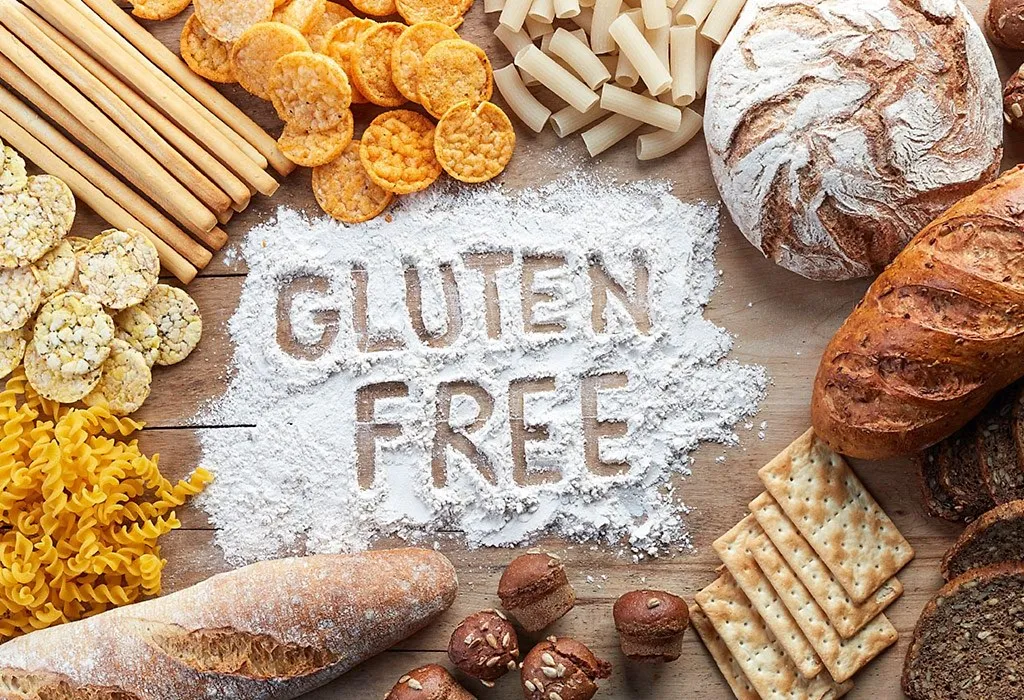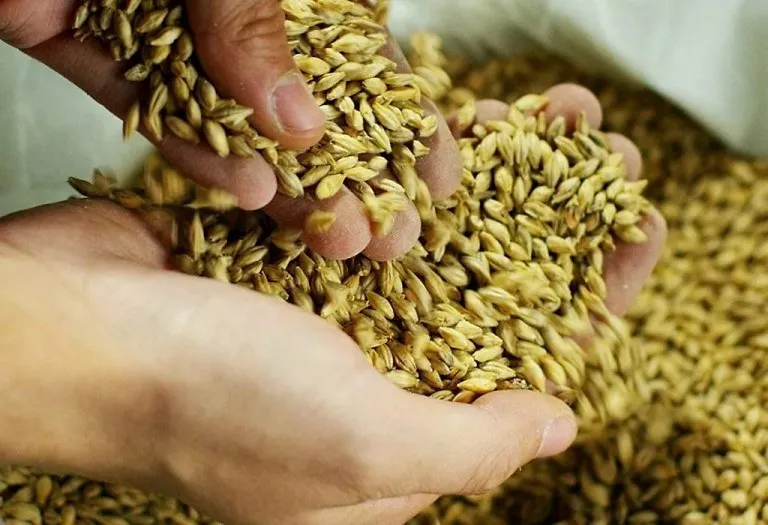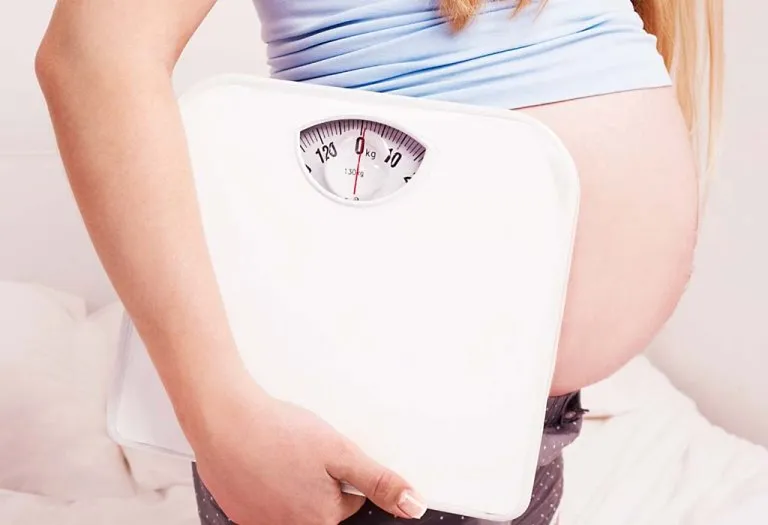Gluten Intolerance During Pregnancy – Signs, Complications and Food Recommendations

Having a wide and expansive dietary palate when you are pregnant is one of the great ways of ensuring you receive all the necessary nutrients your body needs from as many different food sources as possible. While planning this, it is necessary to avoid food items that might trigger an allergy, or you might be intolerant towards it. If you have gluten sensitivity during pregnancy, then a different set of problems come into the picture because not only will consuming gluten result in issues for you, but there are chances your baby might have to bear the brunt of it as well. Let’s dig deeper and understand the relationship between gluten intolerance and pregnancy in simpler words.
What Is Gluten?
Gluten is nothing but a substance that is formed when two specific proteins combine together. This usually occurs in various grains that belong to the family of cereals, the most popular of which is wheat. According to Harvard, it is the presence of gluten, along with a number of other protein-based composite compounds, which allow a dough made from grain to be elastic and moulded into a variety of shapes (1).
What Is Gluten Intolerance?
For certain people, their bodies cannot synthesize the presence of gluten in the food. This results in numerous problems with consumption, all stemming from the gut and affecting the digestive system in the initial stages. This starts manifesting in conditions where the immune system of the gut starts attacking the healthy tissues of the intestine itself because of the presence of gluten in its tracts. This is also termed celiac disease and can be quite harmful as this is an autoimmune disease which is something you canno grow out of (2) (3).
Signs and Symptoms of Gluten Intolerance
The signs and symptoms of gluten intolerance during pregnancy are not simply restricted to inside the body but can be seen in various forms in various areas of the body.
1. Skin Issues
One of the major reactions that a body undergoes on the consumption of gluten is to treat it like a foreign harmful element that needs to be eliminated. The natural reaction of the body is thus to trigger the immune system to combat its presence. This can also result in the formation of a substance called immunoglobulin A, or IgA. This begins to find its way to the upper layers of the skin and ends up creating deposit packets in that area. The result of this is the formation of various blisters on the skin’s surface that are full of water and can resemble pimples as well.
2. Tiredness
The presence of gluten in the body sets internal alarm bells ringing, and the body makes use of all the energy and resources it has to protect it from the external infection and do its best to keep the other processes intact. This tends to eat away a lot of strength from within, causing a person to feel tired or lethargic for no reason.
3. Severe Headaches
In pregnant women, headaches resembling migraine may be caused due to a variety of reasons, but gluten allergy cannot be ruled out as a factor. Various studies have indicated the presence of severe headaches in women who have had gluten sensitivity as well as in a few other women who are suffering from celiac disease. No matter the reason for sensitivity, the research has also shown a marked improvement in the headaches of pregnant women once they opted for a gluten-free diet.
4. Weight Loss
A dangerous result of gluten intolerance could be sudden and unforeseen weight loss even when the diet and eating patterns have remained unchanged. This weight loss could be deemed quite harmful for the baby.
5. Dental Problems
Various studies have linked the formation of ulcers in the mouth to the sensitivity experienced towards gluten. These dental problems range from susceptibility to the formation of dental cavities and decayed teeth, down to recurrent sores of the mouth.
6. Autoimmune Diseases
There are numerous diseases that seem to trigger the immune system in a body which begins to attack the body itself. The sensitivity of gluten has been termed to be a prime reason in this regard, where consuming gluten-based products has led to an autoimmune reaction in the person.
7. Joint Pain
Many physiotherapists and bone specialists have discovered connections between pain in the joints, conditions resembling arthritis and the sensitivity of gluten within the same person. Gluten intolerance results in many inflamed joints and their pain.
8. Confused Thinking
The presence of gluten triggers the body to generate a substance such as IgG or immunoglobulin G. These act as antibodies in the first place but also tend to affect the mental health of a person. Thus, many people with gluten intolerance complain about feeling confused or just not being able to think properly.
9. Depression
This impact on the mental health and well-being of a person can result in an imbalance of moods, resulting in anxiety or even symptoms of depression in a person with gluten intolerance.
Complications of Having Gluten Intolerance During Pregnancy
The complications of consuming gluten while having a sensitivity to it when pregnant can be severe as well as debilitating at worst.
- The child is at a higher risk of developing mental health problems such as schizophrenia.
- Premature delivery might be triggered, leading to giving birth to a stillborn or an anaemic child with severely low weight.
- The presence of celiac disease can make it difficult to absorb nutrients from the food, affecting the growth of the baby.
- Discomfort in the gastrointestinal tract might get chronic due to continued consumption.
- The lining of the small intestine could be completely damaged, leading to pregnancy complications.
- Constant triggering of gluten problems could even result in a miscarriage of the foetus.
Is it Safe to Have a Gluten-free Diet While Pregnant?
Yes, it’s safe to have a gluten-free diet during pregnancy, but it is something not highly recommended unless there is a special need to do so.
For women with celiac disease or other illnesses that are triggered by gluten or wheat consumption, taking a gluten-free diet is a must. A 2020 study revealed that avoiding gluten by women with celiac disease during pregnancy may reduce the risk of heart or urinary birth defects in the unborn baby (4). Additionally, people with celiac disease who avoid gluten in their diet are less likely to develop medical issues like osteoporosis, anaemia, and infertility compared to individuals with celiac disease who have gluten.
Despite the negative attention, if you don’t have celiac disease, dermatitis herpetiformis or wheat allergies, there is no need to go for gluten-free diets. In fact, a study published in the American Journal of Clinical Nutrition revealed that eating gluten during pregnancy will not increase the chances of developing celiac disease in your baby (5).
So, if you have been thinking about going gluten-free during your pregnancy, it is important to do thorough research and get a medical consultation with a gynaecologist or dietician who can guide you on your diet based on your health requirements so your unborn baby does not go without essential nutrients.
Gluten-free Diet During Pregnancy
Things You Should Eat
Creating a gluten-free diet is not difficult and can be achieved by including a few food items without fail (6).
1. Dairy Products With Low Fat
Consuming such dairy products reduces the chances of gluten entering your body and provides you with the calcium and proteins you need for the baby’s growth. You can also have fortified non-dairy milk like fortified soy milk or almond milk.
2. Meat and Other Non-vegetarian Foods
Chicken, eggs, meat, fish and numerous other items do not contain gluten and provide numerous minerals and elements like zinc and iron that benefit both mother and child.
3. Vegetables and Fruits
Opt for green leafy vegetables since they are a rich source of iron and vitamin A. Going for a wide variety of fruits also provides your body with the necessary vitamins you need.
4. Seeds and Nuts
Walnuts, almonds and many other seeds do not contain gluten but hold omega-3 acids that benefit the baby’s growth. The presence of fibre helps relieve constipation as well.
5. Wholegrains
Wholegrains are free of gluten, and options such as rice, corn, soy, sorghum and others ensure you get the strength you need to proceed ahead with your pregnancy.
6. Bakes Beans
Half a cup of baked beans is also helpful in providing essential nutrition as it is gluten-free and rich in zinc.
Things You Should Avoid
Well, what should you avoid? Anything that contains gluten.
P.S. Please always check the label on the back of the product carefully.
Here are some food items you should steer clear of for a gluten-free diet, as suggested by Mayo Clinic (6) and Johns Hopkins Medicine (7):
1. Grains containing gluten
Wheat, rye, barley, triticale (a cross between rye and wheat), oats, wheat germ, cracked wheat, graham flour, wheat bran einkorn, farina, durum wheat, or any other type of flour that is not labelled gluten-free should be avoided.
2. Wheat-based bread, baked goods, and pasta
Anything made with whole wheat or all-purpose flour—either homemade or packaged—like pasta, bread, pizza, crackers, flour tortillas, cookies, pancakes, bagels, cakes, cupcakes, muffins, pastries, puffs, etc., should be avoided to prevent gluten intolerance in pregnancy.
3. Ultra-processed packaged foods and drinks
The following items in the list should be avoided as you may find gluten in them:
- Chips, including potato chips
- Frozen French fries
- Bouillon cubes
- Rice mixes
- Beer, ale and lagers
- Brown rice syrup
- Seasoned tortilla chips
- Soy sauce
- Deli meats, hot dogs, salami and sausage
- Frozen meals
- Imitation fish
- Canned soups
- Pre-made sauces
- Vegetables in sauce
- Matzo
- Bottled salad dressings
- Candy
- Self-basting turkey
4. Additives
Packaged foods containing emulsifiers and additives, such as dextrin, mono- and diglycerides, seasonings, modified food starch, or caramel colour, should be avoided as they can contain gluten or have traces of gluten.
Tips for a Healthy Pregnancy
A woman with gluten sensitivity can lead a healthy pregnancy without worries by keeping a few tips in mind:
- Avoid smoking and alcohol completely
- Maintain mental peace and reduce stress
- Stay away from any sauces and dips
- Stay hydrated and drink water to ease bowel movement
- Opt for natural food items that can balance the nutrients you receive from gluten
- Choose gluten-free alternatives to satisfy your pregnancy cravings
- Folic acid and other supplements should be taken only after doctor’s recommendation
- Be extremely vigilant and strict about staying away from gluten-based food products.
FAQs
1. What are some healthy and tasty gluten-free alternatives for pregnant women?
Build a balanced meal with options like fruits and vegetables, lean proteins, low-fat dairy, nuts and seeds, beans, and gluten-free whole grains like quinoa or brown rice.
2. How to ease nausea and morning sickness when you are pregnant and asked to go on a gluten-free diet?
The trick is to stock up on gluten-free snacks like fresh fruits and vegetables or gluten-free crackers and bread sticks for munching to deal with nausea or morning sickness.
3. Can gluten intolerance lead to miscarriage?
The possibility and chances of miscarriage due to gluten intolerance are there among pregnant women as the intolerance could damage the inner lining of the small intestine, likely leading to miscarriage.
4. Can eating gluten during pregnancy affect the unborn baby?
If you are pregnant and have celiac disease, it is important to have a gluten-free diet only. If you are gluten intolerant and still have gluten, it may increase the chances of preterm labour, stillbirth, or even low birth weight of the baby.
Gluten-free baked goods and breads are popular choices for pregnant women with celiac disease. However, that too should be consumed in moderation as they may come high in sugar, saturated fats, and preservatives and low in nutrition, which may not be the ideal food for a pregnant woman and her unborn baby.
The result of a gluten reaction is frightening enough for a person, further made worse by its effects on the baby. Sketching out a gluten-free pregnancy meal plan should be your first course of action. Sticking to it can help you avoid most of the problems that you might otherwise face during your journey.
References/Resources:
1. Gluten: A Benefit or Harm to the Body?; Harvard T.H. Chan; https://nutritionsource.hsph.harvard.edu/gluten/
2. Celiac Disease; Mayo Clinic; https://www.mayoclinic.org/diseases-conditions/celiac-disease/symptoms-causes/syc-20352220
3. 20 Things You Might Not Know About Celiac Disease; Celiac Disease Foundation; https://celiac.org/about-the-foundation/featured-news/2016/08/20-things-you-might-not-know-about-celiac-disease/
4. Auger. N, Therrien. A, Bilodeau-Bertrand. M, et al.; Coeliac disease and risk of birth defects in pregnancy; Gut Month; https://celiac.org/main/wp-content/uploads/2020/12/Gut-Letter.pdf; July 2020
5. Uusitalo. U, Lee. H. S, et al.; Environmental Determinants of the Diabetes in the Young (TEDDY) study group. Gluten consumption during late pregnancy and risk of celiac disease in the offspring: the TEDDY birth cohort; Am J Clin Nutr.: PubMed Central; https://www.ncbi.nlm.nih.gov/pmc/articles/PMC4625598/; November 2015
6. Gluten-free diet; Mayo Clinic; https://www.mayoclinic.org/healthy-lifestyle/nutrition-and-healthy-eating/in-depth/gluten-free-diet/art-20048530
7. Dietary Changes for Celiac Disease; Johns Hopkins Medicine; https://www.hopkinsmedicine.org/health/conditions-and-diseases/celiac-disease/dietary-changes-for-celiac-disease
Also Read:
Indigestion during Pregnancy
Lactose Intolerance in Pregnancy
Eating Spicy Food while Pregnant
Calcium in Your Pregnancy Diet
Was This Article Helpful?
Parenting is a huge responsibility, for you as a caregiver, but also for us as a parenting content platform. We understand that and take our responsibility of creating credible content seriously. FirstCry Parenting articles are written and published only after extensive research using factually sound references to deliver quality content that is accurate, validated by experts, and completely reliable. To understand how we go about creating content that is credible, read our editorial policy here.





































